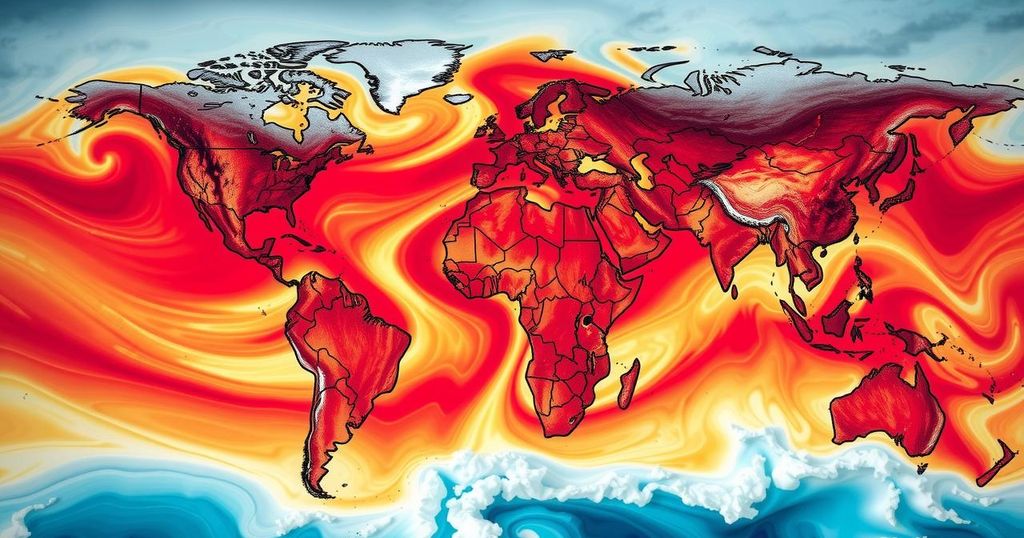Weather
AFRICA, ANTARCTICA, ANTÓNIO GUTERRES, ANTONIO GUTERRES, AUSTRALASIA, BURGESS, CLIMATE, CLIMATE CHANGE, COPERNICUS CLIMATE CHANGE SERVICE, EGYPT, EU, EUROPEAN CENTRE FOR MEDIUM - RANGE WEATHER FORECASTS, GLOBAL WARMING, GREENHOUSE GAS EMISSIONS, LOS ANGELES, NORTH AMERICA, SAMANTHA BURGESS, UN, UNITED STATES, WEATHER
Daniel O'Connor
0 Comments
2024 Sees Record Global Temperatures Exceeding Preindustrial Levels
In 2024, global temperatures reached 1.6 degrees Celsius above preindustrial levels, marking the hottest year since 1850 and contributing to extreme climate events, including devastating wildfires in Los Angeles. The increase in temperature is attributed to human activities, particularly carbon emissions. The need for urgent climate action remains critical as the frequency of natural disasters continues to rise.
In 2024, global temperatures exceeded preindustrial levels, reaching an alarming 1.6 degrees Celsius above the baseline, marking it as the hottest year on record since 1850. This increase correlates with intensifying climate-related disasters worldwide, such as the catastrophic wildfires in Los Angeles that destroyed over 9,000 structures and resulted in multiple fatalities. Experts attribute this dramatic warming primarily to human actions, notably carbon emissions from fossil fuel combustion, compounded by rising energy demands from technologies like artificial intelligence.
The report from the European Union’s Copernicus Climate Change Service emphasizes that in the decade from 2015 to 2024, each year ranks among the ten warmest recorded. The year 2024 itself saw unprecedented daily temperatures, with July 22 marking a record global average of 17.16 degrees Celsius. Notably, all continents, except Antarctica and Australasia, experienced their hottest years ever recorded, further underscoring the urgency of addressing climate change impacts.
Climate change has emerged as a critical global issue, exacerbated by human-induced factors such as greenhouse gas emissions. The international community, including entities like the United Nations, has long warned about the need to limit the increase in global temperatures to 1.5 degrees Celsius to avert catastrophic environmental consequences. The COP27 conference in 2022 highlighted these concerns, calling for immediate action to mitigate climate impacts. Recent reports show that these warnings have gone unheeded, resulting in record-breaking temperature rises and intensified natural disasters that pose significant threats to worldwide ecosystems, infrastructure, and human safety.
The findings of 2024 highlight an urgent need for global leaders to prioritize climate action as the world continues to exceed critical temperature thresholds. The correlation between rising global temperatures and the frequency of natural disasters demands immediate and coordinated measures to reduce greenhouse gas emissions and transition to sustainable energy sources. Without decisive actions, the adverse effects of climate change are expected to escalate further, jeopardizing ecosystems and human health globally.
Original Source: www.cnet.com




Post Comment